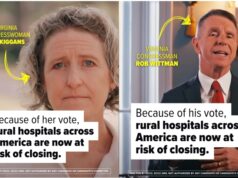The Pittsburgh Post Gazette recently reported on what it called the coal company waltz. “More than 200 former congressional staff members, federal regulators and retired lawmakers are employed by the mining industry as lobbyists, consultants or senior executives, including dozens who work for coal companies with the worst safety records in the nation.”
The “waltz” simply isn’t the dance of former legislators onto K Street or into corporate suites. In the last decade, industry officials have also gotten jobs on staffs in Congress and at the Mine Safety and Health Administration (MSHA), which is supposed to enforce safety standards.
An argument can be made that persons with expertise in a field of endeavor are necessary in order to understand how to regulate an industry. However, the danger of serious conflicts of interest are obvious, and it appears that the situation at MSHA was an example of a conflict of interest gone terribly wrong.
It was a 30-year veteran executive of the coal industry, Richard Stickler, that George W. Bush nominated to head the MSHA in 2006. That was not a good appointment if you are a miner, nor was Bush’s earlier appointment of David Lauriski.
Stickler was so embedded in the coal industry that senators on both sides of the aisle felt he had too many conflicts of interest to serve in the job. His nomination was twice sent back to Bush by the Senate. So, Bush used a recess appointment to put Stickler in office.
It was Stickler who devised the so-called “scoring system” for identifying dangerous coal mines. That system, which President Obama has strongly criticized, has allowed mines like Massey’s Upper Big Branch in West Virginia to continue operations even after dangerous safety violations have been found. Compounding the problem has been the ability of coal operators to contest every violation that the MSHA writes, rather than fixing them.
Before Stickler took over, President Bush nominated David Lauriski to head the agency. Lauriski was the guy who oversaw regulations that allowed conveyor belt tunnels to double as ventilation shafts. Some people believe that practice helped cause the 2006 Massey Aracoma Alma No. 1 mine fire that killed two miners. Massey lost a lawsuit over that tragedy, in part because CEO Don Blankenship had threatened to fire a mine supervisor who wanted to stop digging coal long enough to fix problems with the conveyor belt and the heat that was building up in the tunnel..
The Post-Gazette notes that two coal companies, Massey Energy and Murray Energy, have accounted for accidents that have claimed 40 lives in the last decade. They have “more than 5,700 pending safety violations.” The companies also have hired almost a dozen former MHSA district directors in various executive positions.
There should be a sea change in store for the MSHA. Joseph Main, who was in charge of health and safety programs for the United Mine Workers of America, has been appointed by President Obama to head the agency.
There is no way that this nation can stop using coal as a fuel in the foreseeable future. However, we can commit to two things. First, we – and I mean industry as well as government – must invest in “clean coal technology,” which right now doesn’t exist. If someone can come up with a way burn coal in a relatively clean way, the entire earth will benefit. After all, the United States is not the largest consumer of coal. China is. Coal supplied 70% of China’s energy needs in 2006.
Second, we have to end the massive environmental destruction caused by most mountaintop removal surface mining and, at the same time, insure that underground mining is safer for the men who venture deep into the earth to extract coal. It ought to be unthinkable to put people in charge of the agency that regulates mine safety and miners’ health who are in bed with the very people they should be regulating.
The coal company waltz needs to end.
(Massey recently acquired Cumberland Resources, one of the largest privately-held coal companies. Cumberland is headquartered in Wise County, insuring that Massey now has a large presence in the Commonwealth.)












